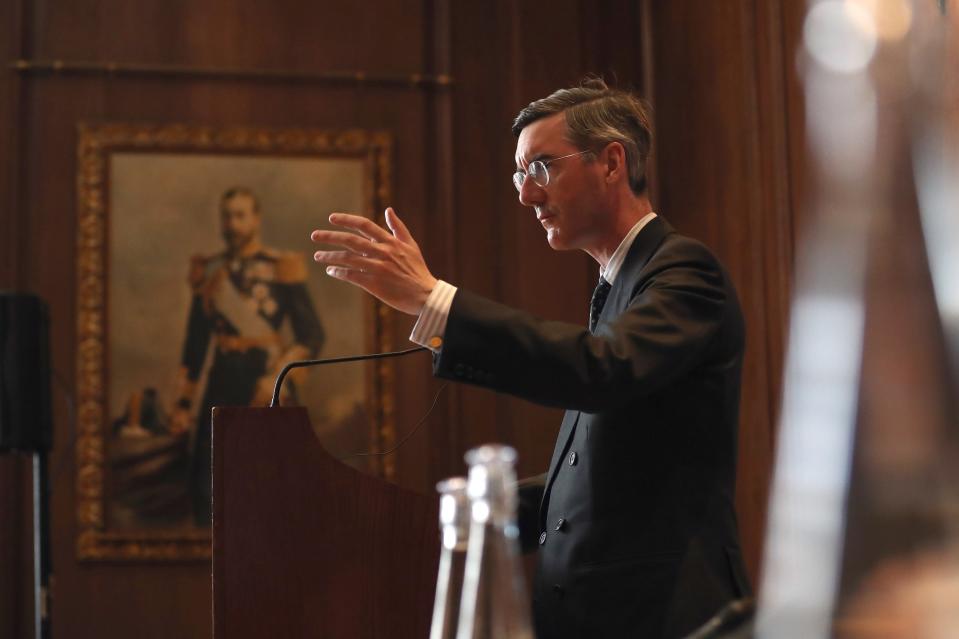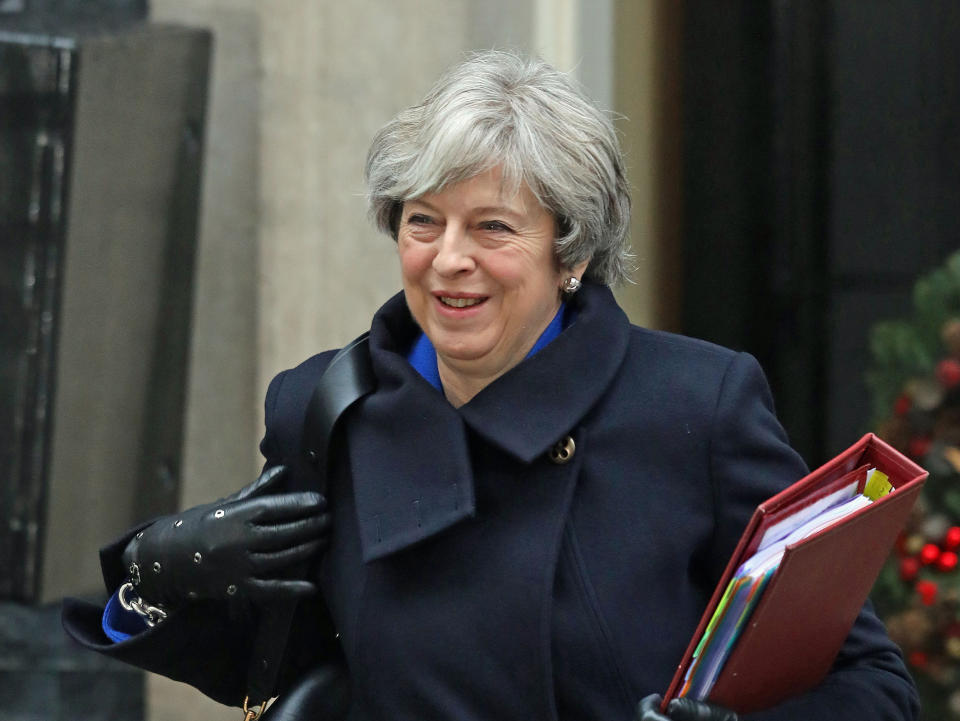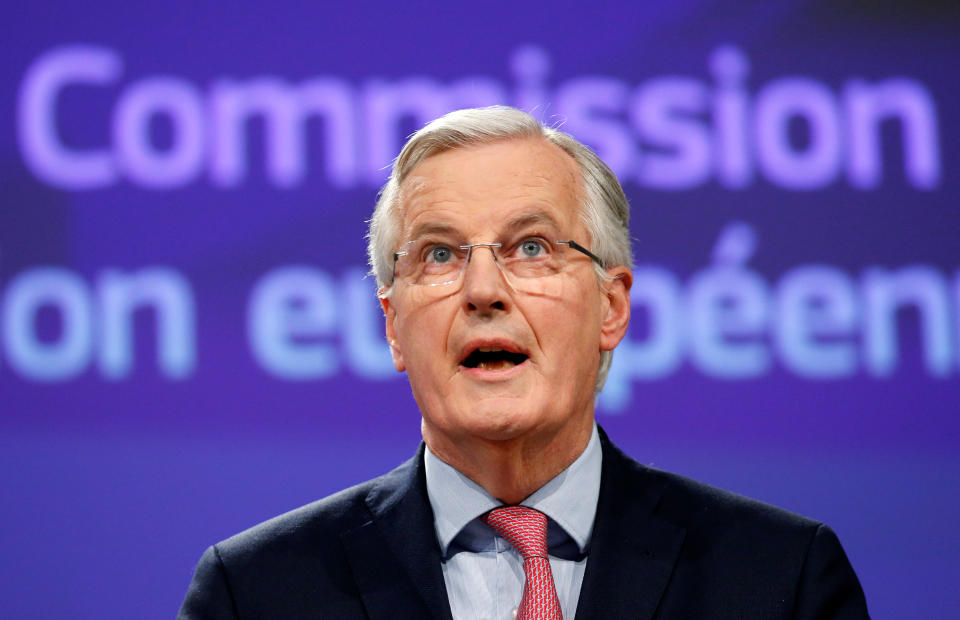What does the Brexit 'red lines' letter from Tory MPs mean for Theresa May?

More than 60 hardline Tory Eurosceptics have fired off a letter to Theresa May outlining their Brexit “red lines”.
Led by the likes of arch Brexiters Iain Duncan-Smith and Tory posterboy Jacob Rees-Mogg, the European Research Group’s letter has been described as a “ransom note”.
It includes a number of “suggestions” for securing a successful Brexit and backs the prime minister’s vision that includes leaving the single market and customs union.
MORE: Fears Tories ‘could rip up rights for workers’ after Brexit
But critics say the intervention is another indication of her weak position as Tory leader as she is is in no position to confront the hard Brexiters.
Tory arch Brexiteers seek to bind cabinet’s hands ahead of that ministerial lock in on Thursday that is supposed to determine future EU trade relationship pic.twitter.com/VVB1F16RMY
— Robert Peston (@Peston) February 20, 2018
What is the ERG?
Basically, it’s a group of MPs dedicated to “delivering a Brexit that works for everyone”.
In reality, in recent months the group has been increasingly vocal in pushing for a “hard” Brexit, one that will see the UK sever ties as quickly as possible with Europe, “taking back control” of borders and laws and ensuring not a penny more than is legally required should be paid to Brussels after March 2019.
There is no official membership list, as one does not have to be published.
BBC research suggests the ERG has been in existence since 1992 and includes MPs of all persuasions, but mainly from the Leave camp.
MORE: David Davis says there will be no ‘Mad Max-style’ free-for-all post-Brexit

What does the letter say?
The ERG backs Theresa May’s position on leaving the customs union and single market. It says: “Leaving them both isn’t a question of ideology, but practicality; we can’t strike those free trade deals if we don’t.”
It goes on: “The UK should negotiate as an equal partner. Ministers may not want or be able to accept the EU’s timing and mandates as fixed, and should be able to set out alternative terms including, for example, building an agreement based on our World Trade Organisation membership instead.”

What is the group worried about?
“The UK must be free to start its own trade negotiations immediately.”
One of the biggest challenges facing the PM is the fact that Europe says if a two-year transition period is to be enacted, Britain must abide by all the existing trading arrangements, rules and laws – and that means no trade deals with the US or Australia or Japan or anywhere can be signed.
While the UK will be free to talk, nothing can be signed.
The ERG wants assurances that, for example, quotas can be discussed with individual EU countries and that London “must have power to do so directly rather than only through a UK/EU agreement”.
It adds: “Any implementation period must not restrain the UK from negotiating or signing other trade agreements.”
MORE: Boris Johnson allies deny claims that he ‘secretly admitted Brexit was a mess’
How could that work?
The ERG wants the UK to use the World Trade Organization framework. Member countries that do not have a free trade agreement with each other trade under “WTO rules”.
If no Brexit agreement is reached by March 2019 – or there is agreement on a transition period, but none on a future relationship – then, by default, the UK will need to move to trading under the WTO regime, either in March 2019 or on the expiry of the transition period.
Under WTO rules, each member must grant the same ‘most favoured nation’ (MFN) market access, to all other WTO members – and that means exports to the EU would be subject to the same customs checks, tariffs and regulatory barriers that the UK and EU currently charge on trade with countries such as the US.
The ERG is saying it is concerned Brussels might impose tougher checks or higher tariffs on UK goods and services as a marker to other countries who might consider leaving – and that’s unacceptable.
What about laws and regulations?
One of the key planks of the Leave campaign was ‘taking back control’ – of border and laws.
The ERG letter says: “Full regulatory autonomy. Your Government must have the ability to change British laws and rules once we leave, rather than being a ‘rule taker’ without any substantive say in whatever Brussels decides.”
Again, there has been talk out of the EU that the UK will remain subject to current EU laws during any transition period – and possibly any new rules, regulations and laws enacted during that time.
This, again, is something that Brexiters find hard to stomach.

 Yahoo Movies
Yahoo Movies 

